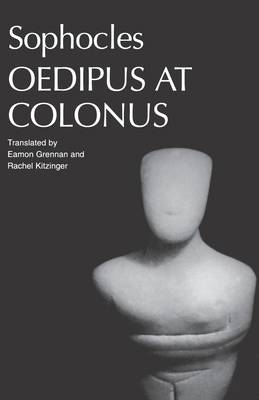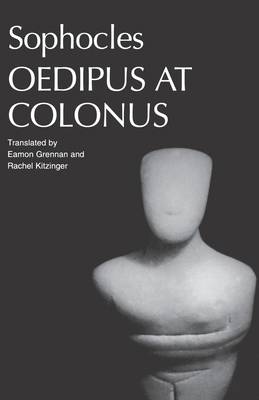
- Afhalen na 1 uur in een winkel met voorraad
- Gratis thuislevering in België vanaf € 30
- Ruim aanbod met 7 miljoen producten
- Afhalen na 1 uur in een winkel met voorraad
- Gratis thuislevering in België vanaf € 30
- Ruim aanbod met 7 miljoen producten
Zoeken
€ 45,45
+ 90 punten
Omschrijving
The latest title to join the acclaimed Greek Tragedy in New Translations series, Sophocles' Oedipus at Colonus tells the story of the last day in the life of Oedipus. It was written at the end of the fifth century BCE in Athens, in the final years of the "Golden Age" of Athenian culture, and in the last year of Sophocles' own life. At the center of the play is the mysterious transformation of Oedipus from an old and blind beggar, totally dependent on his daughters, to the man who rises from his seat and, without help, leads everyone to the place where he is destined to die. In the background of this transformation stands the grove of the Furies, the sacred place of the implacable goddesses who pursue the violators of blood relationships. Although Oedipus, who killed his father and married his mother, is an obvious target of the Furies' vengeance, he enters their grove at the beginning of the play, sure that it is the resting place Apollo has predicted for him. The reversals and paradoxes in the play speak to the struggle that Oedipus' life and the action of the play bring vividly before us: how do we as humans, subject to constant change, find stable ground on which to stand and define our moral lives? Sophocles offers his play as a witness to the remarkable human capacity to persevere in this struggle.
Specificaties
Betrokkenen
- Auteur(s):
- Vertaler(s):
- Uitgeverij:
Inhoud
- Aantal bladzijden:
- 122
- Taal:
- Engels
- Reeks:
Eigenschappen
- Productcode (EAN):
- 9780195135046
- Verschijningsdatum:
- 16/12/2004
- Uitvoering:
- Paperback
- Formaat:
- Trade paperback (VS)
- Afmetingen:
- 142 mm x 218 mm
- Gewicht:
- 181 g

Alleen bij Standaard Boekhandel
+ 90 punten op je klantenkaart van Standaard Boekhandel
Beoordelingen
We publiceren alleen reviews die voldoen aan de voorwaarden voor reviews. Bekijk onze voorwaarden voor reviews.








